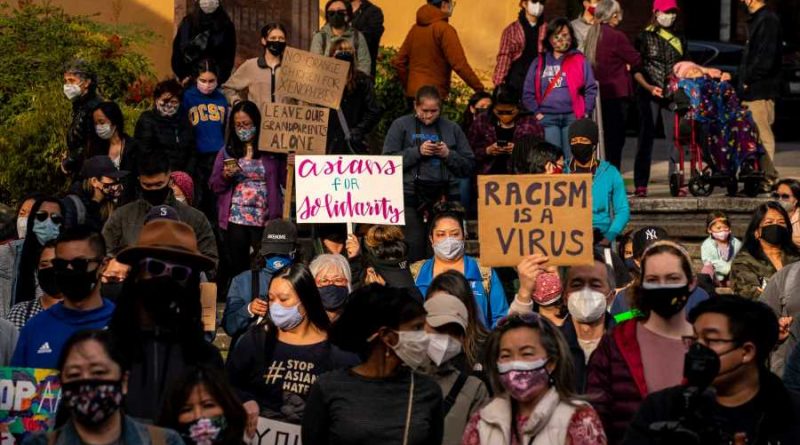7 Concrete Ways to Do Your Part for the Asian American Community Right Now
Six Asian women were among the eight murdered in shootings at three Atlanta-area spas on Tuesday — a tragedy that comes at a time when Asian hate crimes in America have been on an alarming rise.
There have been 3,795 reported anti-Asian incidents between March 19, 2020 and Feb. 28, 2021, according to the Stop AAPI Hate coalition. Violent incidents against Asians from coast to coast have already led to deaths this year, including that of 75-year-old Pak Ho in Oakland and 84-year-old Vicha Ratanapakdee in San Francisco. The numbers reported since the onset of the coronavirus are devastating — but even worse, the actual amount of occurrences is believed to be far higher. The AAPI community is all too aware this is nothing new, however. The nation’s history has long perpetrated the divide, dating back as far as the 1882 Chinese Exclusion Act and 1885 Rock Springs Massacre.
Load Error
Volunteer for your local community.
In this moment, the best way to show support for the community is by taking action. “Those of us in the Asian American community know that this has been going on since last March. It shows up almost daily in our news feeds and yet despite our pleas nothing has really been done and no one has really amplified this issue,” actor Daniel Dae Kim, who has become a leading advocate against Asian hate crimes, said in a video interview. “Awareness is really just the first step. Now it’s about volunteering, it’s about contacting community organizers who are working in communities like Oakland, the Bay Area, and New York City, where so many of these attacks are happening, and donating to these causes. And it’s about speaking up — it’s about not being silent.”
Immediately report all incidents.
It’s important to report all incidents of anti-Asian sentiment, no matter how great or small, to Stop AAPI Hate — a joint project the Asian Pacific Planning and Policy Council (A3PCON), Chinese for Affirmative Action (CAA), and the Asian American Studies Department of San Francisco State University launched last spring. Since the language barrier is thought to be a hurdle, the site allows for incidents to be reported in English, as well as Chinese, Korean, Vietnamese, Japanese, and Tagalog, among others.
“Whether you’re a witness or a victim, report these incidents because we know there’s a tendency in the Asian American community not to report,” Kim continued. “These figures that we’re citing now are not accurate. They’re actually very underreported. So we need to know the scope and the breadth of the problem, so reporting is part of it.”
Enroll in bystander intervention training.
Also essential is training on how to stop harassment as a bystander, as Hollaback! and Asian Americans Advancing Justice have teamed up to do in hour-long Bystander Intervention to Stop Anti-Asian American Harassment and Xenophobia workshops. Check here for upcoming sessions.
Check in on your friends.
Checking in with your Asian friends during this harrowing time is another major way to show support, as the Asian and Pacific Islander nonprofit collective Gold House advised, tweeting: “We want you to check in on your API friends and neighbors. But we also want you to know that we’re fired up and are actively planning tonight. When life gets tough, we get tougher.”
Donate.
For those looking to contribute to causes to combat the racist rhetoric, these are just a few of the many organizations working to support the community:
- Armed Patrol Security Guards for Oakland Chinatown
- Asian Americans Supporting Justice
- Enough is Enough
- Hate is a Virus
- Heart of Dinner
- Stop Asian Hate
- Stop AAPI Hate
- They Can’t Burn Us All
Support AAPI-owned brands.
Additionally, the purchase of the products on this list, like the Jing Fong mug and #StopAsianHate keychain, also support AAPI initiatives.
Keep the conversation going.
Engaging in difficult conversations with an open mind is also one of the most helpful ways to show solidarity — and then spreading that word. “Amplifying the message is part of it,” Kim added. “If you have a Twitter, if you have any social media, get the message out. Contact your legislators and your district attorneys and ask what they’re doing.”
“There’s something in the psyche of people that somehow makes it okay for us to attack and verbally abuse Asian Americans,” the actor best known for Hawaii Five-O explained. “It’s really just a question of speaking up, speaking out, and really fighting the injustice that we’ve been subject to historically since our immigration to this country, but especially now.”
Source: Read Full Article




